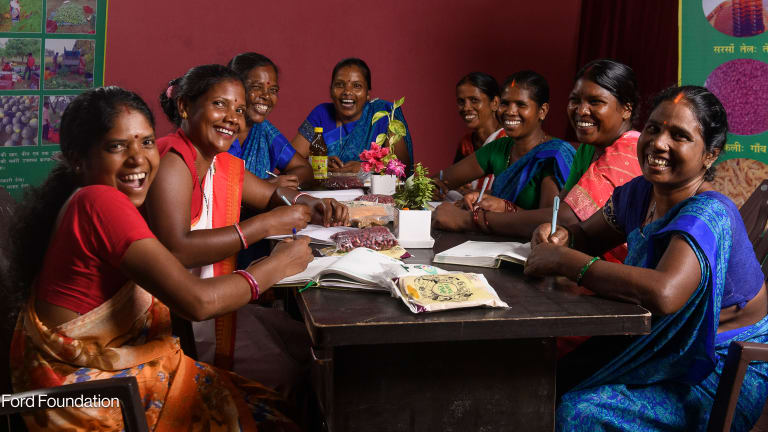
There’s a familiar narrative in the world of large-scale international aid. Ideas tend to flow from Washington or Sydney or London to our world’s most vulnerable communities — impacting the world thousands of miles from where they started. This story has a recognizable cast of actors, too — a mosaic of donors and recipients, often working in tandem but almost always distinguishable from one another.
It’s time this story got a bit of a rewrite.
Like a lot of things, the Amplify program grew out of a few simple questions. What would it look like for large-scale aid to become more inclusive and collaborative? How could we turn that transaction into a conversation? The Innovation Hub of the U.K. Department of International Development was looking to answer these questions and at IDEO.org, we wanted to see if our human-centered design approach could help resolve them. Over years of designing products, services and social businesses in communities around the globe, we’ve seen countless local innovations at work. We wanted to provide a platform for communities around the globe to share these ideas, work together and influence the kinds of projects funded in their neighborhoods.
At its core, Amplify is a series of 10 innovation challenges, each tackling one of the world’s toughest development challenges. Using the OpenIDEO.com platform for open collaboration and a series of offline activities that extend the process to communities with limited or no access to the Internet — like toll-free dial-in systems and community brainstorms — we’re hoping to write a new script for international aid.
In this updated narrative, local NGOs, individual communities and other actors traditionally excluded from the development world — like designers, entrepreneurs and students — are helping to drive idea generation right from the beginning and collaborating across borders to bring new and existing ideas to the fore.
Our first challenge, which is open for submissions now, focuses on making cities safer and more empowering environments for women and girls. So far we’ve seen more than 2,800 contributions from 100 countries around the globe. We’ve heard from individual women in Nepal who turned a fruit delivery truck into an improvised transportation system to avoid harassment on city buses, and from a community organization in Cape Town whose safe houses double as neighborhood watch posts in the city’s informal settlements. It’s obvious that women in cities across the developing world aren’t just benefiting from innovation. They are leading the way.
As the conversation continues over the next few weeks, ideas will be improved and iterated through collaboration. Working with DfID, our job as designers is to find the most innovative solutions and help them scale for impact. Personally, I can’t wait to see what this new cast of characters comes up with.
Want to learn more? Check out She Builds and tweet us using #SheBuilds.
She Builds is a month-long conversation hosted by Devex in partnership with Chemonics, Creative Associates, JBS International as well as the Millennium Challenge Corp., United Nations Office for Project Services and U.K. Department for International Development.








